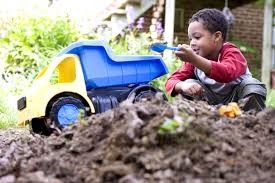 As your child grows and develops, it’s important to continue finding opportunities for the family to play together. Have fun and use the time to bond as a family. In this post, we’ll learn some different activities and games to play with our toddlers and preschoolers to help facilitate learning, development, and strengthening relationships.
As your child grows and develops, it’s important to continue finding opportunities for the family to play together. Have fun and use the time to bond as a family. In this post, we’ll learn some different activities and games to play with our toddlers and preschoolers to help facilitate learning, development, and strengthening relationships.
Toddler Years
12-15 Months
Help your child discover the world around them. Take walks and go on adventures outside. Allow opportunities for pretend play by encouraging child to pretend to stir a dinner pot or care for a baby doll. When you notice them pretend playing on their own, ask if you can join them in their fun by sampling their pretend soup, jumping like a frog, or flying through the air like a bird.
It’s time to start translating pretend play to real-life small tasks. Allowing them to be your little helpers makes them feel important and capable, and even teaches new skills. Even if their help turns into messes, let them practice and encourage them along the way. Some easy ways to get started include letting them hand you the pillows when making the bed or having a special low drawer with safe kitchen objects he can hand you to help you prepare meals. Your toddler may be on the move now, so let them run around outside, or make obstacle courses indoors.
18-24 Months
Now your toddler is getting better at problem-solving, so break out the puzzles and other problem-solving toys. Your child will soon begin to understand rhythm, so turn on the music and let them dance! This is when toddlers become more capable of using their hands, so let them to finger paint, turn the pages when reading books, and use toys that encourage their motor skills.
Preschool Years
2 Years to 3 Years
When your child enters the preschool age, their imagination begins to grow wild. This is when they can start engaging in different types of play, each enhancing its own area of your child’s development. Encouraging and creating opportunities for these types of play will help teach your preschooler new skills that they will use later in life.
 Constructive play is child centered, so allow your child to make the rules and lead the fun. When engaged in constructive play, your child should be experimenting and creating the environment. Building blocks, playing in the sand, or Legos are great examples of constructive play.
Constructive play is child centered, so allow your child to make the rules and lead the fun. When engaged in constructive play, your child should be experimenting and creating the environment. Building blocks, playing in the sand, or Legos are great examples of constructive play.
Social play allows your preschooler to interact with children in the same age group. This type of play should have some sort of structure and teaches children valuable social skills such as conflict resolution, sympathy, and patience. Go ahead and schedule that play date!
Dramatic play occurs when children assign and act out pretend roles. It involves stepping outside of reality and pretending to be someone else. In this process, children can experiment and explore, ultimately learning appropriate self-regulation and the proper way to behave in different social settings. Dramatic play can include playing house, hosting a tea party, or playing with dolls.
Sensory play lets your child experience things that stimulate their senses. Whether it is music, painting, watching the clouds, or playing with play dough, these activities activate different areas of your preschooler’s brain and helps them explore using their senses!
Practice play is important for preschoolers as it helps them understand new skills. The more they experience repetition of new skills, such as riding a bike or playing a game or sport, the more their confidence increases. Practice play is one of the forms of play that continues into adulthood.
You Are Your Child’s Favorite Toy
Remember that their favorite toy is … YOU! The quality time you spend with your child playing and responding to their needs is the most important ingredient to their healthy development.
Additional Resources:
Check out these games to support your child’s play time.
Watch this video for tips on how to facilitate and respect your child’s play.


